Dark Heart Read online
Page 6
There was a knock at the door. ‘Room service,’ a man called.
Carmel moved to the peephole and looked into the hallway. The African man had a trolley and wore the uniform of the hotel. She pulled her robe closed tighter, then slid the safety latch aside and let him in. She told the man to put her meal on the desk and signed for the stuffed chicken breast and salad, leaving him a ten rand tip. The man thanked her and left. She’d counted on the service being slower. The food could wait under its cloche until she was finished with her messages.
The next one up was from her personal assistant, Ros. Carmel opened it.
Hi Carmel, hope the flight wasn’t too terrible. Just wanted to let you know that the subpoenas have all now been sent. Cheers, Ros.
‘Good,’ Carmel said out loud, and typed the same one-word reply, adding, Thanks.
Finally, she got to Henri’s message.
Bonjour again. If you get this before you leave for Livingstone, I just wanted to say again how good it is that you can take time out to visit us. Please don’t think it’s just about the donation – as kind as it was, I am very much looking forward to meeting you. I hope you don’t mind, but I have taken the liberty of booking us a cruise on the Zambezi for the afternoon of your first day. If you are too tired we can postpone it, but I would recommend it. The river is beautiful. Little Carmel the chimp is looking forward to meeting you, I am sure.
Rgds, Henri
Henri Bousson, Director, The Second Chance Wildlife Rehabilitation Centre, Livingstone, Zambia
Carmel reread Henri’s message. It was an indulgence, deviating via Zambia instead of flying straight to Rwanda, so what difference would a cruise on the river make? She was going to enjoy herself. Apart from a three-night safari in the Serengeti two years previously, she hadn’t had an actual holiday or more than a weekend’s break in four years. There was always too much work. Besides, she thought as she sipped her Coke, she didn’t like having too much time on her hands, too much time to think.
She hadn’t thought that her donation had been all that significant, and wondered if Henri paid this much attention to all his donors. Perhaps he was struggling for funds. Carmel sent Henri a short reply saying she looked forward to seeing him at the airport, then she clicked on the first of the many case files she needed to review. She might be indulging in a short break from tomorrow, but there was still work to be done.
As she cut into her chicken she read about a panga, wielded with enough force to sever a baby’s head and then cleave halfway through the body of the mother who had been carrying the child on her back. Carmel had ordered the chicken because as well as not drinking alcohol she hadn’t eaten red meat in seventeen years.
*
Richard smoked a cigarette as the detectives, one black and one white, from the Nelspruit Murder and Robbery Squad interviewed him. A crime-scene photographer strobed the front garden with the rapid fire of his flash.
‘You can’t think of anyone who wanted to hurt you?’ the black detective, Mabunda, asked again.
Richard glanced at Lourens, who stood by Janine’s bakkie with his arm around his wife. She was still visibly distressed. ‘I want to go home,’ she’d said after Richard had calmed her a little. Half of Impala Street had come out at the sound of the gunshots, but most had since returned to their homes. Richard had called Lourens on his mobile phone and told him there was a dead man in his front garden and it might be best if Lourens came and collected his wife.
Richard had wondered, briefly, as he’d stood over the body of the man he’d killed, whether the man with the cut-down silenced assault rifle had been sent by Lourens to kill him. Contract killing was as common as it was cheap in South Africa. But Richard had quickly dismissed the idea. Lourens had pulled a gun on his wife and he was a bombastic, macho man. If he wanted a man dead he’d do it himself, then face the consequences afterwards. Before he’d hung up, Richard had told Lourens that, for the record, he had not had sex with his wife, which was pretty much the truth, and that if Lourens pulled a gun on Janine again Richard would shoot him. Lourens hadn’t responded, but when he’d arrived Janine had run to him and he had wrapped his big arms around her and kissed her and apologised.
Once he’d arrived, Lourens had looked at the body and said, ‘I don’t know him.’ He’d said nothing to Richard about the evening’s earlier events, or about the condition of the wounded ranger.
‘What about the rifle?’ Richard had pushed.
Lourens had rubbed his chin. ‘Ja, I know about these things. We’ve got one of these in the armoury that we took off a poacher, but this one’s not ours.’
‘How can you be sure?’
‘It’s there – I checked it earlier this evening when I was thinking about shooting you.’
‘So,’ Detective Mabunda continued now, ‘if you can’t think of anyone who would want to kill you, Doctor, then what are we to make of this man opening fire on you with a silenced military rifle without provocation?’
‘You’re the detective.’
‘Do you gamble, Doctor Dunlop?’
‘No, I have bad luck.’
‘Drugs?’
‘What do you mean?’ Richard scratched his ear, then lowered his hand. He knew cops were trained to look for telltale body language.
‘I mean, do you keep prescription drugs in your home?’
‘Oh, right. Yes, I do as a matter of fact. I keep some in my medical bag, which I lock up at night when I’m home.’
Mabunda looked around the living room, which was littered with shattered glass from the gunfight. ‘That bag over there, on your couch?’
‘Yes.’
‘Unsecured.’
‘Yes, I was out saving a man’s life tonight. Been a bit hectic.’
‘Do you keep large sums of money in your home, or jewellery?’
‘I’m broke, Inspector, and I believe less is more when it comes to accessorising.’
‘Why are you making jokes, Doctor Dunlop?’
‘I don’t know, because no one seems to be laughing.’
Detective Mabunda left him to go back to the body, where the white member of the duo, whose name was Lutz, had found something. Richard thought about the line of questioning, about who might want him dead. A couple of husbands, perhaps. He’d never dealt in England, or falsified prescriptions for addicts, or been otherwise involved with other criminals. He’d only supplied drugs illegally to himself. He was a one-man train wreck and had decided early on not to take on any passengers. He was clean now, but it wouldn’t take the police too much effort to find out about his history.
Lutz held up a plastic bag, which he gripped in rubber-gloved hands by the extreme tip. ‘White powder. About ten grams, I think. Care to speculate on what it might be, Doctor?’
‘A fit-up, by the look of it,’ Richard said. South Africa had a justifiably bad reputation for violent crime and home invasions, but that sort of thing happened in Johannesburg and Durban, not in the staff village in the Kruger National Park. The man lying dead in the flowerbed had come to kill him and, by the look of it, plant a bag of cocaine somewhere at the scene of the crime. A drug deal gone wrong, the police and newspapers would speculate, once the first cop or reporter did a bit of googling and found out Richard Dunlop’s form.
Richard suspected many, if not all, the residents of the staff village knew something of his past in the UK, but no one so far had been indiscreet enough to say anything to his face. They all knew how hard it was to get a GP to come out to the park, and how high the turnover rate was for the ones that did come. He was sure many idealistic young doctors fresh out of college might think it a plum job – living in a nice house on the banks of the Sabie River in a veritable garden of Eden. They’d think there was little or no crime – and they’d be pretty right if you took out casualties in the war against poachers and tonight’s little episode – and plenty of excitement.
In fact, there was very little excitement, which had been one of the reasons Richard was dra
wn to the job. Most of his patients were the park’s staff and their families, and beyond check-ups and malaria tests and the odd sprained limb, there was nothing too dramatic to keep a keen doctor interested. The tourists who came to see the doctor were the paranoid, such as Mr Philpott the snakebite victim, and the mundane – travellers’ trots, and a stupid Australian man last week who’d stabbed himself in the palm with his own pocket knife. That was all fine by Richard. He didn’t do blood if he could help it. The slick skin of the ranger with the chest wound had reminded him why he’d turned to drugs all those years ago. He didn’t want to go back there, but if he’d been alone in the house tonight, instead of in the presence of a would-be mistress, a jealous husband, a police squad and a dead assassin, he might have been tempted to take out the wounded ranger’s gun, chamber a round and raise it to his lips. He’d contemplated suicide before, but talked himself out of it. What use, he asked himself, was a half-hearted attempt as a cry for help if there was no one to hear the cry? And he didn’t really think he was brave enough to actually go ahead and just do it.
*
‘Yissis, but that chick driving the Merc should get a medal, hey,’ Piet said.
Liesl sat in the passenger seat of Piet’s Land Cruiser Prado. She could see his knuckles were cut and swollen from the beating he’d given the man in the pub earlier. Sannette stood at the open door of the four-by-four, holding Liesl’s hand. Liesl couldn’t bear to look back at the police cars and the ambulance and the flashing lights that bathed the crime scene. The woman who had run down and killed the man who’d shot at Liesl was being comforted by her husband, who’d arrived on the scene shortly after the police.
‘We’ll get you home just now,’ Sannette said. ‘I spoke to the officer in charge and she said you should be able to leave soon, once you talk to the detectives.’
‘I’ve already told the police everything I know,’ Liesl protested.
Piet put a hand on her knee. ‘It won’t take long.’
Liesl shook her leg, shrugging off his touch. She wanted to be alone. With a bottle. She looked up at Sannette. ‘He followed me from the pub – but I was driving your car.’
Sannette shook her head. ‘No one wants me dead – not even my husband. Besides, look at us, Liesl, I’ve got black hair and you’re blonde – no one would mistake us for the same person. This was just a Joburg thing – a carjacking.’
‘Ja but he didn’t tell me he wanted the car, or my purse, or order me to do anything, he just looked at me, raised his gun and fired.’
‘These people . . .’ Piet said, but trailed off when the uniformed African female police captain walked over. Two men in plain clothes followed her.
‘These are the detectives, Miss Nel. They’ll talk to you now.’
Liesl sighed.
*
Vite clung to the woman who had rescued him from the hunters. He nuzzled her bosom, searching out the milk that he should have been getting from his mother. But his mother was dead.
‘Non,’ the woman chided him. Instead, she held a baby’s bottle and pushed the rubber teat into his mouth. Vite gulped the strange-tasting milk. The woman had two children of her own, aged three and five, and they reached up for the little gorilla’s black feet and played with his toes. Vite kicked as he drank, causing the young girl to squeal and run out of the hut.
Vite finished the bottle and wailed for more. The woman told him to hush, then carried him out into the sunshine. She walked to another hut and left the two small children with a wizened woman who came to the door and tut-tutted when she saw the orphan baby gorilla in the woman’s arms. The woman carrying Vite shrugged, then set off up the path towards the road that led from the village of Ngiko down the N2 to the distant city of Goma and the muti market, where people would buy and sell most any type of animal, dead or alive, for food, muti or for pets.
*
After the police and Lourens and Janine had left, Richard took a beer from his refrigerator, sat down at the desk in the second bedroom of his staff house and switched on his laptop. He noticed a red smear on the blotter under the computer.
Richard inspected the underside of his hand and saw a gash. He must have cut it on a shard of glass. It wasn’t serious, but he got up and washed the cut in the bathroom sink while he waited for the slow computer to boot up. He looked down at his shirt and saw that it, too, was stained with blood, as were his trousers. Blood. How he hated it.
As he sat back down the computer chimed to life and Richard opened his email program. He wouldn’t be able to sleep after the night he’d had. He hadn’t checked the messages on this private account for four days – there was rarely anything of interest for a man who was hiding from nearly everyone he knew. He scrolled through the multitude of offers of Viagra and penis enlargements, and Nigerian bank scams, and ignored the jokes from the few remaining friends who had his address. His cursor hovered over the one entry that might mean something. It was an email from the war crimes prosecutor, Mike Ioannou, dated a few days earlier. Despite Mike’s death the subpoena he had put in motion on behalf of the ICTR had still been processed and delivered.
The subject line of the email read: Summons to appear before the International Criminal Tribunal, Rwanda. He clicked on the message and read it. When he finished he rocked back in his swivelling office chair and thought about what he had just read. He took a long sip of beer and then typed ‘Escape! magazine’ into the Google search field.
*
Jet lag woke Carmel at four in the morning. It always happened when she flew from Australia to Africa. Knowing that she wouldn’t be able to get back to sleep, she got up, showered and returned to reading her case notes and Mike’s investigation notes.
She still couldn’t believe Mike was dead, killed by a hit-and-run driver while on holiday in Thailand. The Australian Federal Police were assisting the Royal Thai Police in the investigation, but the latest information Carmel had was that there were no further leads on the identity of the driver. Given who Mike was, and the nature of what he’d been investigating for the ICTR, the Feds were taking it very seriously indeed. When the police went to Mike’s hotel room to collect his effects they found the room had been burgled. His camera was lying on the desk, but an empty laptop bag indicated that his computer had been stolen.
Carmel had been given responsibility for Mike’s caseload, including an ongoing investigation he’d been carrying out but keeping pretty close to his chest. She scrolled down to the list of witnesses who had been subpoenaed by Mike to attend the ICTR hearings in Arusha or to give written depositions. She still couldn’t quite believe the two names that confronted her again from the screen – Liesl Hannelie Nel and Doctor Richard Edward Dunlop.
In her early years as a lawyer Carmel had served in the Australian Army as a legal officer. In 1995 she’d been sent to Rwanda as part of a UN peacekeeping mission. She had met plenty of civilians, including journalists and photographers, but it was an uncanny and, frankly, unnerving coincidence that Mike Ioannou, in his capacity as a senior ICTR prosecutor, had been interviewing a man she’d thought she’d loved in Rwanda seventeen years ago, and a woman she had once wanted to kill.
She and Richard had met at an officers’ mess dinner in Townsville, before Rwanda, and not long after he’d arrived in Australia on his exchange posting from the British Army to the Australian Army Medical Corps. He’d sat next to her and looked incredibly dashing in his mess uniform, and she’d been pleased to have someone so charming to talk to in between the toasts and the formalities. She usually found these dinners a bore. She wasn’t so much on the outer because she was a woman – there were a few other female officers on the brigade headquarters staff – but as a lawyer she was expected to take good-naturedly the same old litany of lawyer jokes each time there was a social gathering.
He’d wanted to know about her, not what an army lawyer did but what sort of music she listened to, what her taste was in the arts, where she’d grown up. He was interested in her, and she i
n him.
She’d had a couple of boyfriends at university but had been too preoccupied with meeting her parents’ high expectations to devote much time to relationships and they had run their natural course. She prided herself in being cautious around men, a trait she believed served her well in the presence of so many alpha males on an army base. In fact, she had set herself a personal rule of not falling for a military man. Her long-term plan was to finish her enlistment in the army and then move into private practice. She had served in the army reserve while at university and enjoyed military life, but only envisaged her time as an army lawyer as a stepping stone.
But there was something about Richard; perhaps it was that he was British and wouldn’t be in Australia for long. She wasn’t the sort of person to have a one-night stand or a brief affair with an exchange officer virtually passing through the base, but thinking about it now, many years later, she wondered if she had dropped her guard and become friends with him because she knew he would only be around a few months and therefore there was no risk of her becoming involved with him. Or it could have been his eyes.
He had asked her if she had ever scuba-dived and she had confessed that although she had lived all her life in north Queensland, on the edge of the Great Barrier Reef, she never had. He had cajoled her into doing a one-day dive and she had loved it; afterwards they had gone for a meal. He’d talked about medical school, and the rigorous training he had undergone to become a member of the British Army’s parachute regiment and she had liked the way he combined the strength and fitness of a paratrooper with the brains of a doctor. And he was unlike most of the other officers at the brigade, who were career soldiers. Richard was working off a return of service – an obligation to the army to serve as a doctor for as many years as the military had supported him through university and medical school. Although he was only in the army for a limited time, he had nonetheless done some of the toughest training imaginable. He was a driven man who seemed to apply himself to the nth degree in everything he attempted.

 The Cull
The Cull Blood Trail
Blood Trail Red Earth
Red Earth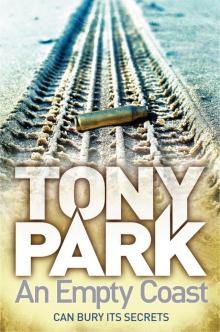 An Empty Coast
An Empty Coast Dark Heart
Dark Heart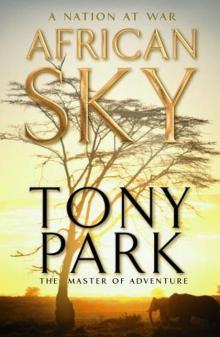 African Sky
African Sky The Delta
The Delta Captive
Captive Ivory
Ivory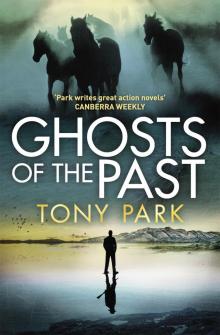 Ghosts of the Past
Ghosts of the Past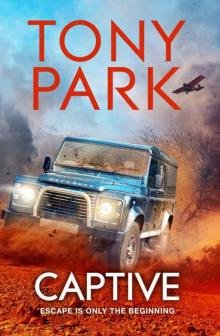 Captive_A High-octane And Gripping African Thriller
Captive_A High-octane And Gripping African Thriller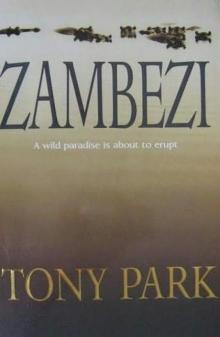 Zambezi
Zambezi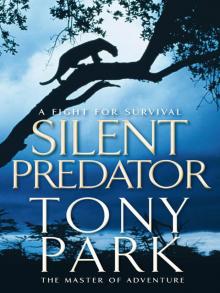 Silent Predator
Silent Predator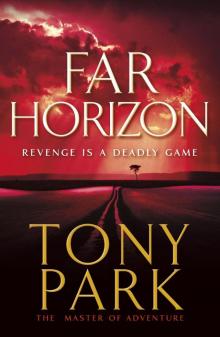 Far Horizon
Far Horizon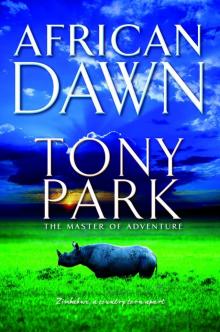 African Dawn
African Dawn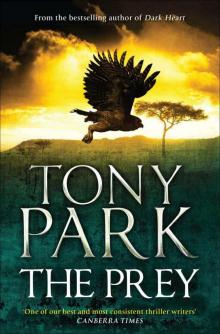 The Prey
The Prey Safari
Safari